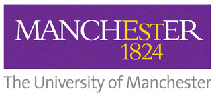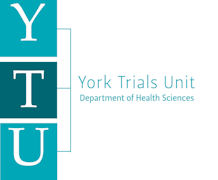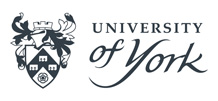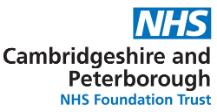Behavioural Activation for Young people with depression in specialist child and adolescent mental health services (BAY)
Background
Rates of emotional disorders in young people have been increasing and the Covid-19 pandemic is disproportionately affecting the mental health of young people with record levels of demand. From 2017 to 2020, rates of probable mental health disorders in children and young people aged 7 to 16 rose from 1 in 9 (12.1%) to 1 in 6 (16.7%). Consequently, the demand for CAMHS has continued to rise and now in England, it has been predicted that 1.5 million children and young people under the age of 18 will need extra mental health support as a result of the pandemic. Young people with more severe depression and high risk are referred to specialist child and adolescent mental health services (CAMHS) where there is a significant shortage of therapy training provided to less experienced and more junior staff. Behavioural activation is a type of therapy that encourages young people to monitor their daily activities, identify values and goals and schedule activities and tasks that they find meaningful and enjoyable. This aims to break the cycle of depression and encourage activity even when the young person does not feel like it. The BAY Trial is the largest trial in the UK measuring blended behavioural activation with severely depressed young people in CAMHS settings.
Aim
The aim of the trial is to examine the effectiveness, cost-effectiveness and acceptability of blended BA + psychoeducation + treatment as usual (TAU) versus TAU + psychoeducation (PE) in newly referred depressed adolescents in specialist CAMHS.
The Study
BAY is a multi-site pragmatic, two-arm randomised controlled trial of an 8-week programme of blended (delivered online and in-person) Behavioural Activation in addition to psychoeducation and usual care versus psychoeducation and usual care for young people who are moderately to severely depressed and are on the waiting list for therapy in CAMHS. The trial includes an internal pilot, health economic evaluation and process evaluation.
We aim to recruit 528 young people from 5 NHS Trusts across the United Kingdom, each with 2-3 CAMHS clinics.
Band 4 and 5 NHS staff based in CAMHS will be trained as behavioural activation therapists. 8 therapy sessions will be delivered over the course of 12 weeks either in person at a CAMHS site, or online. Digital workbooks will be used to facilitate the session.
Data will be collected from young people and their parents/carers at baseline, 12 weeks, 6 months and 12 months. The primary outcome measure will be the child-completed Moods and Feelings Questionnaire at 6 months.
Privacy Notice: How we use your research data
Funding
| Funders(s) | NIHR HTA |
|---|---|
| Start Date | June 2022 |
| End Date | February 2026 |
Members
YTU Team
- Professor Catherine Hewitt - Senior Statistician
- Emma Standley - Trial Coordinator
- Rachel Ellison - Trial Coordinator
- Camila Piccolo-Lawrance - Trial Support Officer
- Alex Mitchell - Trial Statistician
- Abbie Cowling - Trainee Statistician
- Han-I Wang - Health Economist
External Team
- Bernadka Dubicka – Chief Investigator
- Anupam Bhardwaj - Principal Investigator
- Clare White - Psychology Lead
- Gokce Cokamay Yilmaz - Qualitative Researcher
- Penny Bee - Qualitative Lead
- Kapil Sayal - Principal Investigator
- Hannah Strange - Psychology Lead
- Rachel Elvins - Principal Investigator
- Paul Wallis - Psychology Lead
- Paula Hull - Psychology Lead
- Melissa Street - Psychology Lead
- Sam Young - PPI Lead
- Emma Wakefield - PPI Young Persons Representative
- Toni Wakefield - PPI Carers Young Persons Representative
- Susanne Marwedel – Original creator of BAY manual
- Ade Kolade - Cultural Lead
- Lesley-anne Carter - Statistician
- Pauline Whelan - Digital Lead

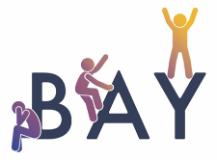
-218x118.png)
